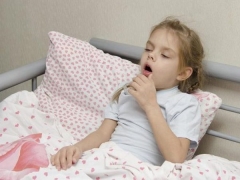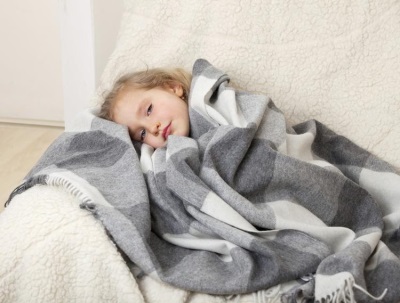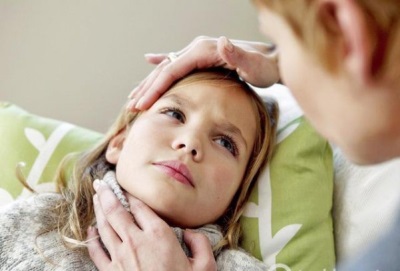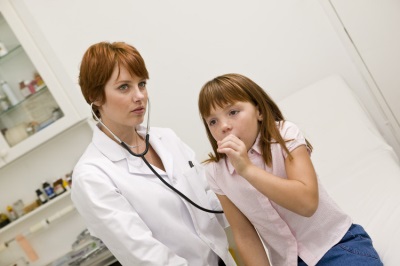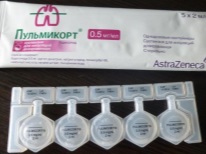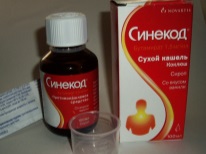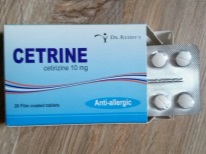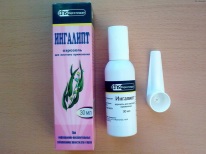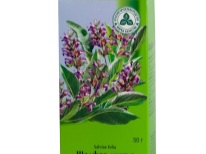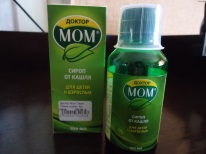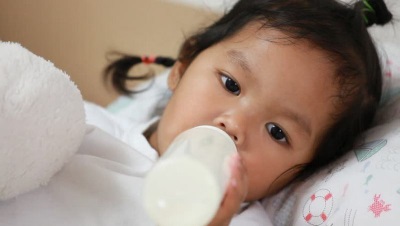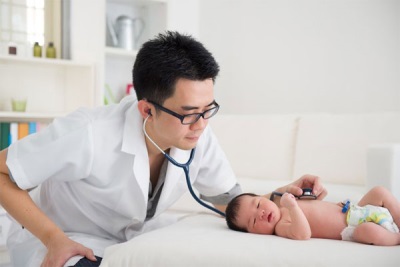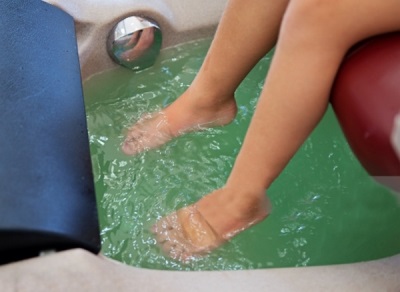Laryngitis cough in a child: symptoms and treatment
The inflammatory process in the larynx is characterized by a characteristic cough, which causes the child severe discomfort and worries parents very much. When it appears, it is important to know how to help the crumbs during an attack and what drugs treat laryngitis.
Symptoms
The larynx can be affected due to exposure to viruses, hypothermia, loud cries, bacteria, allergens, tobacco smoke and other harmful factors. The mucous membrane of the larynx swells and reddens, and the vocal cords may thicken or stop closing.
Due to these changes, the child begins to complain about:
- Sore throat.
- Discomfort when swallowing.
- Hoarseness or loss of voice.
- Sore throat.
- Headache.
- A slight increase in temperature.
But the main and most unpleasant symptom that causes special problems for children with laryngitis is a specific dry cough. Because of the similarity with the barking of a dog, a similar cough was called barking. Only 2-5 days after the onset of the disease, the cough begins to moisten and becomes productive.
How to treat?
In the early days of laryngitis, the treatment is aimed at moisturizing laryngitis cough. To do this, use plenty of drink, humidification, inhalation, rinse and other local treatment for the throat. Himself cough often do not eliminate, but only try to make it productive. Next, for better sputum discharge, the doctor prescribes expectorants and mucolytics.
How to treat: a review of drugs
When dry laryngitis cough, a child is often prescribed nebulizing inhalations with saline and borjomi, as well as steam inhalations with herbal decoctions or sea salt. Inhalation through a nebulizer with Pulmicort or Budesonide is also effective. These drugs reduce inflammation and expand the lumen of the larynx.
If the cough is unproductive and intrusive, the child can be given antitussive means for example Libexin, Codelac or Sinekod. However, you should know that only a doctor should prescribe such drugs, because their incorrect use can worsen the condition of the baby.
In many cases, a child will be given an antihistamine for laryngitis, for example, Claritin, Zodak or Tsetrin. Such means reduce puffiness and calm the child, but, like drugs with a central effect on the cough center, they should be discharged by a specialist.
To eliminate tickling, itching and sore throat, it is recommended to rinse. For therapeutic rinses, you can use just warm water, in which salt and soda are added, but more often the procedure is carried out with decoctions of herbs (chamomile, calamus, sage, anise seed) and antiseptic solutions.
To eliminate inflammation and dryness often use medicines in the form of sprays and aerosols. Babies are prescribed Ingalipt, Angilex and Miramistin. In addition, pills that the child must absorb, for example, Lizobact or Faringosept.
As soon as the child begins to cough up phlegm, he is prescribed expectorants and a means of reducing the viscosity of mucus in the airways. The list of such funds is quite large. More commonly used herbal medicines, for example, Prospan, Gedelix, Licorice Root Syrupsyrup Herbion or Dr. Mom. Also often prescribed drugs such as ACC, Ambroxol, Bromhexine and the like.
How to eliminate a coughing fit?
Laryngitis cough in children often appears in the form of seizures. They are very frightening parents, especially if they occur at night, as they are manifested not only by dry cough, but also by the child’s strong anxiety, as well as respiratory insufficiency.
If such an attack has started, the parents should:
- Try to distract the baby and calm him down.
- Allow to drink a warm alkaline liquid, for example, Borjomi or milk with soda.
- Dip the child's feet in warm water, making a foot bath.
- Give access to fresh air, for example, go to the balcony or open a window.
Features of the treatment of children under one year
The smaller the baby, the more seriously the laryngitis can flow in it, therefore it is impossible to delay the treatment to the doctor. In infancy, the disease is manifested by lethargy, moodiness, severe coughing, anxiety, whistling and wheezing during crying, bluish coloration of the nasolabial triangle. Disease in babies up to one year is dangerous due to frequent development of stenosis, therefore, when having a night coughing attack, the infant’s parents should call an ambulance.
What can not be done?
To condition the child with laryngitis coughing not worsened, parents should not:
- Give a child antitussive drugs on their own, antibiotics or antihistamines. Such drugs are allowed to give the baby only after consulting a pediatrician.
- Soar your baby's feet or make him a hot bath.
- Overheating throat (this can increase swelling).
Tips
- During the treatment of laryngitis cough, the child should protect the throat. To do this, avoid inhaling cold air and harmful vapors, do not strain the vocal cords with a cry. Keep your child inhaling the air with his nose and talking less.
- The air in the room where the sick child resides should be moistened. In this case, the best way is to use a humidifier. It is also necessary to ventilate the room and often do wet cleaning in it.
- To moisten the laryngitis cough, it is important to give your baby more drink. Offer a child non-sour juice, compote, milk with honey, warm guy, mineral water without gas.
- Also, keep an eye on the temperature of the food your child uses with laryngitis. The food should not irritate the throat, so do not give the crumbs too hot or very cold dishes.
After watching the next transfer of Dr. Komarovsky, you will learn more about cough medicine.
